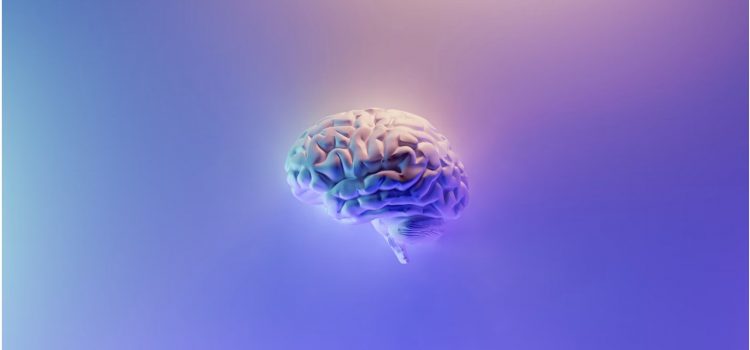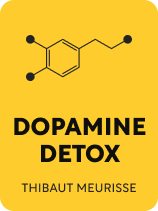

This article is an excerpt from the Shortform book guide to "Dopamine Detox" by Thibaut Meurisse. Shortform has the world's best summaries and analyses of books you should be reading.
Like this article? Sign up for a free trial here.
How does dopamine work? Does dopamine always provide a feeling of pleasure?
In Dopamine Detox, Thibaut Meurisse explains the biological role of dopamine. Contrary to popular belief, dopamine doesn’t necessarily make you feel pleasure—rather, it pushes you to seek pleasurable experiences.
Keep reading to learn how dopamine works and why it’s not necessarily a good thing.
Understanding Dopamine
How does dopamine work? Dopamine is a naturally occurring chemical often described as the “pleasure chemical,” but, according to Meurisse, this is a common misunderstanding. He explains that dopamine is the chemical cue for reward-seeking behavior. It’s the neurotransmitter that motivates you to seek out pleasurable experiences, not the chemical that causes you to feel pleasure.
| The Biological Role of Dopamine Dopamine serves multiple roles beyond the body’s reward system. As Meurisse explains, dopamine is a neurotransmitter, a chemical messenger in the brain that helps to transmit signals between nerve cells. As a neurotransmitter, dopamine is involved in many biological functions, including movement, memory, mood, learning, and even lactation. When produced in the adrenal gland, dopamine is categorized as a hormone rather than a neurotransmitter and plays an important role in regulating blood pressure, kidney function, and insulin secretion. Medical professionals have noted a correlation between dopamine imbalance and some neurological and psychiatric disorders. For example, Parkinson’s disease is a degenerative disorder caused by the loss of dopamine-producing neurons in certain parts of the brain resulting in symptoms like tremors and muscle rigidity. However, dopamine levels vary depending on environment, genetics, and other individual differences, so healthy dopamine levels will look different for everyone. |
Dopamine has played a critical role in human evolution, motivating people to focus their energy on pleasurable activities necessary for survival and reproduction, like eating food or having sex. However, Meurisse argues that dopamine no longer offers the same evolutionary benefit that it once did. The modern world is a media-saturated environment, full of passive entertainment, like social media or video games, which constantly trigger dopamine, offering minimal benefit and leading to sensory overload.
(Shortform note: A 2018 study found that dopamine may also be responsible for the enhanced cognitive abilities that contributed to humans’ evolutionary advancement. Researchers speculate that humans’ elevated dopamine levels led to more cognitively advanced l abilities, like intricate social group formation and complex language development, which contributed to the survival of our species.)
The Dark Side of Dopamine
Meurisse explains that in the modern world, companies use dopamine as a tool to steal your focus. As a consumer, your attention equals money, so companies like TikTok or Instagram are constantly competing for that attention. As you scroll through social media, the anticipation of receiving likes, comments, and other forms of social validation activates the reward centers in your brain, releasing dopamine. When you receive positive feedback, your brain associates the experience with pleasure and reinforces your desire to seek out more of it. This creates a cycle of reward-seeking behavior that can become addictive and prevent you from focusing on more important tasks.
(Shortform note: More specifically, social media apps keep you engaged by using a technique called the variable reward schedule, which involves providing users with intermittent rewards delivered at unpredictable intervals. Social media companies also use algorithms to carefully craft and personalize the rewards (for example, posts of people or products that interest you) so that they’re more likely to be appealing and satisfying to each individual user. The more time users spend on the app, the more data is collected, allowing the app to further tailor the rewards to the user’s preferences and behavior. The unpredictability and personalization of the rewards in these apps make them even more enticing and, therefore, more addictive.)
The problem is that constantly seeking the next sensory input leads to sensory overload, which prevents you from focusing on the work that matters most. When you anticipate a pleasurable activity, dopamine is released. As more dopamine is released, your body needs an increased level of sensory input to release the same amount of dopamine. The impact, according to Meurisse, is that you’re left constantly looking for the next sensory input. Overstimulated, you become easily bored by low-stimulation activities (like focused work) and incapable of the deep focus necessary to accomplish your long-term goals.
(Shortform note: In The Willpower Instinct, Kelly McGonigal explains that in this constant state of anticipation, we crave greater and greater rewards, which often leads to more impulsive and risky behaviors. She adds that when your brain has high levels of dopamine, you’re also more susceptible to temptations of all kinds, from risky financial decisions to overeating.)

———End of Preview———
Like what you just read? Read the rest of the world's best book summary and analysis of Thibaut Meurisse's "Dopamine Detox" at Shortform.
Here's what you'll find in our full Dopamine Detox summary:
- Why society suffers from a constant state of sensory overload
- Why dopamine is to blame for our inability to focus and accomplish goals
- How to do a dopamine detox to regain the ability to focus






